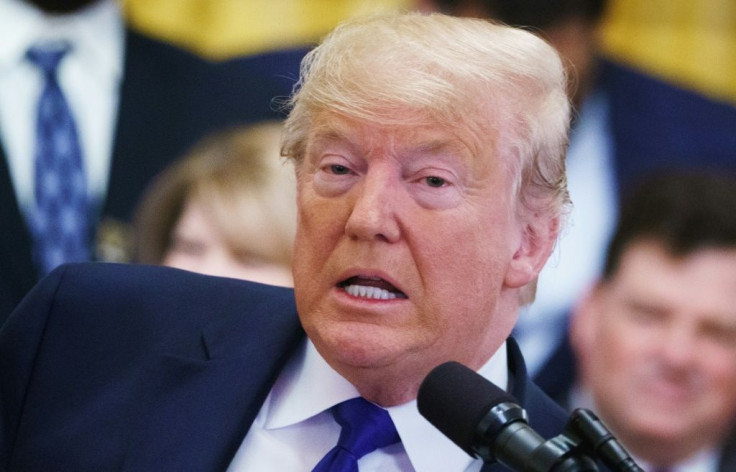Trump Impeachment: Defense Brief Doesn't Deny President Pressured Ukraine

KEY POINTS
- The defense brief is due to be filed Monday ahead of Tuesday's start of the impeachment trial at 1 p.m. EST
- The brief says abuse of power is not a crime and calls the accusation a novel theory
- Harvard law Professor Laurence Tribe says Trump's lawyers shouldn't be allowed to use "baseless arguments"
White House lawyers call on the Senate to reject impeachment charges swiftly in a brief ahead of the start of President Trump’s trial but do not deny the president tried to pressure Ukraine to do his political bidding.
The Senate is due to convene at 1 p.m. EST Tuesday as the president’s trial on abuse of power and obstruction of Congress charges gets underway in earnest. Last Thursday, the charges were formally read to the upper chamber by Rep. Adam Schiff, D-Calif., who led the House impeachment investigation. Afterward U.S. Supreme Court Chief Justice John Roberts and the senators were sworn in, pledging to do “impartial justice.”
Trump is accused of withholding $391 million in military aid in exchange for Ukraine announcing an investigation into former Vice President Joe Biden and his son, Hunter, and then trying to block Congress from investigating his actions. The money eventually was released without any investigation being announced.
The brief submitted Monday characterizes Trump’s impeachment as a “brazenly political act” that followed a “rigged process.” It says no impeachable offense was committed and calls on senators to repudiate the process.
"The articles themselves—and the rigged process that brought them here—are a brazenly political act by House Democrats that must be rejected. They debase the grave power of impeachment and disdain the solemn responsibility that power entails. Anyone having the most basic respect for the sovereign will of the American people would shudder at the enormity of casting a vote to impeach a duly elected president," the brief reads
Rather than denying the charges, the brief frames Trump’s actions as the executive prerogative in conducting foreign policy.
"House Democrats’ concocted theory that the President can be impeached for taking permissible actions if he does them for what they believe to be the wrong reasons would also expand the impeachment power beyond constitutional bounds," the brief says.
The brief says the first article of impeachment, abuse of power, is a “novel theory” but has no basis in law. It characterizes the second article, obstruction of Congress, as an attempt to violate the separation of powers concept in the Constitution.
"By limiting impeachment to cases of 'treason, bribery, or other high crimes and misdemeanors,' the framers restricted impeachment to specific offenses against 'already known and established law,'" the brief reads.
Democrats argue Trump’s behavior clearly meets constitutional standards for impeachment. In a brief filed Saturday, they argued the president represents a threat to national security.
Democrats want the Senate to hear from witnesses who were blocked by Trump from testifying during the House investigation. The Senate was expected to vote on the issue after the prosecution and defense lay out their cases.
Harvard law Professor Laurence H. Tribe said in an op-ed piece in the Washington Post that Trump’s lawyers shouldn’t be allowed to use “baseless arguments” in defense of Trump.
“The argument that only criminal offenses are impeachable has died a thousand deaths in the writings of all the experts on the subject, but it staggers on like a vengeful zombie. In fact, there is no evidence that the phrase ‘high crimes and misdemeanors’ was understood in the 1780s to mean indictable crimes,” Tribe wrote.
Rather, Tribe noted, there virtually was no federal criminal law in place when the Constitution was written. He said the framers didn’t want to wait for an election to remove a president if the chief executive abused his office.
Trump weighed in Monday, criticizing the House for not waiting for the courts to enforce subpoenas for key administration figures and saying since the House was unfair to him during its inquiry, there’s no reason for the Republican-controlled Senate to accommodate Democrats.
© Copyright IBTimes 2024. All rights reserved.






















